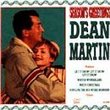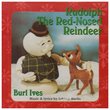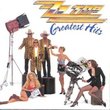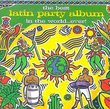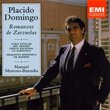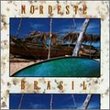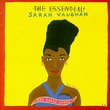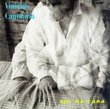| All Artists: Erich Wolfgang Korngold, John Mauceri, Berlin Radio Symphony Orchestra, Nicolai Gedda, Andreas Scholz, Anna Tomowa-Sintow, Gotthold Schwarz, Hartmut Welker, John David DeHaan, John David de Haan, Josef Becker, Julian Metzger, Martin Petzold, Ralph Eschrig, Regina Schudel, Regine Gebhardt, Reinhart Groschel, Reinhild Runkel, Rene Pape Title: Erich Wolfgang Korngold: Das Wunder der Heliane Members Wishing: 1 Total Copies: 0 Label: Polygram Int'l Release Date: 5/8/2002 Album Type: Import Genre: Classical Styles: Opera & Classical Vocal, Historical Periods, Modern, 20th, & 21st Century Number of Discs: 3 SwapaCD Credits: 3 UPC: 028943663625 |
Search - Erich Wolfgang Korngold, John Mauceri, Berlin Radio Symphony Orchestra :: Erich Wolfgang Korngold: Das Wunder der Heliane
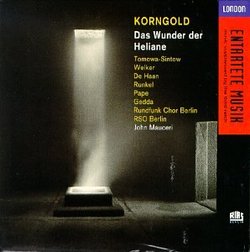 | Erich Wolfgang Korngold, John Mauceri, Berlin Radio Symphony Orchestra Erich Wolfgang Korngold: Das Wunder der Heliane Genre: Classical
As Part of Decca's Acclaimed Entartete (German for Degenerate) Series Devoted to Either Suppressed Or Forbidden Music During the First Half of the 20th Century, Korngold's Notorious Opera Das Wunder Der Heliane Composed in... more » |
Larger Image |
CD DetailsSynopsis
Album Details As Part of Decca's Acclaimed Entartete (German for Degenerate) Series Devoted to Either Suppressed Or Forbidden Music During the First Half of the 20th Century, Korngold's Notorious Opera Das Wunder Der Heliane Composed in 1927 Recieves Its Premier Recording Here. Korngold's Ravishing Orchestration Heightens the Combination of Mystical, Erotic, Religious and Philosophical Themes that Abound Throughout the Piece. All Interested with Music in Particular and the Arts in General of this Period this Will Certainly Find Much to Enjoy Here. Similarly Requested CDs
|
CD ReviewsSonic feast essmac | Nashville, TN USA | 06/06/2002 (5 out of 5 stars) "This music is so sensuously beautiful that it's practically dirty, like some magnificently orchestrated opium dream. Luscious to the point that the traditional rules of harmony start to dissolve. But always a composer with a sense of how to please his audience, Korngold never fails to deliver an overwhleming climax after his long, deliciously excrutiating build-ups. To the comments about Tomowa-Sintow's gorgeous singing (especially of the big Act II aria- and yes, it's a real live aria, and a darn good one, too. If I were Renee Fleming, I would be singing it at every concert), I would single out Rene Pape and Gedda for praise.Gedda, in spite of his age, responds beautifully to the challenging second tenor role. Pape sings a lyric aria (much like the beautiful lyric baritone aria in 'Die Tote Stadt') in Act III that's absolutely brilliant, featuring the most beautiful high note (a G I think) I have ever heard come out of a lower-voiced man's mouth. If you can get your hands on this set, buy it!" If you like Puccini you will love this! J. Luis Juarez Echenique | Mexico City | 05/04/2000 (5 out of 5 stars) "I don't know if this is the most important release in the Entartete series, but it's certainly the most enjoyable. Korngold is finally getting the recognition he deserves, and DECCA made him proud with a sensational recording of his Art Deco stravaganza. Sure, the plot is silly to say the least, and very pretentious too, but the music is really inspired and drop-dead gorgeous. When one listens to this forgotten treasures it's impossible not to ask where they have been all our lifes. Under John Mauceri's baton the rich orchestra play to all it's worth, but it is the heavenly singing of Anna Tomowa-Sintow that is most memorable, after hearing her soaring, impassioned aria, I was sure this was the real thing. What a pity that Lisa della Casa or Gundula Janowitz never sang this opera. But Tomowa-Sintow was an inspired choice, the warmest most sincere of sopranos. If you enjoy Turandot or Salome don't hesitate, Heliane is full of wonderful things." It's Ear Candy, but it's damn good Ear Candy J. Luis Juarez Echenique | 03/13/1999 (5 out of 5 stars) "This is the last word in Germanic post-romantic operatic opulence. Korngold's orchestration makes his most overbaked film scores sound anemic in comparison: the score sweeps and surges with a richness of texture that out-Strausses Strauss (in sonic terms). The story is of no importance (it certainly doesn't sustain the over 3 hour length. If you want philosophical import, consult your Parsifal recordings). Das Wunder is all about unabashedly lush music. What substance there is comes from the daring harmonies, some sections are pungent to the point of undermining the sense of tonality (in somewhat the same manner of Elektra, but without the psychological subtexts). Fans of Tomowa-Sintow must not miss this: her voice loses it's cream above the stave, but overall her singing is amazing, full of rich beauty, textural understanding, stunningly gorgeous high pianissimos, and real emotional force. The tenor role is much in the vein of Tristan or Sigfried (meaning impossible) but De Hann does extraordinarily well, balancing power with good taste, and pulling out some lovely high softs of his own. The recording quality is outstanding, full of detail and able to encompass the huge climaxes. One can hardly believe that Mauceri and his forces haven't been playing this fiendishly difficult score for years. Act 3 is basically one long highlight: the choral climax must be heard to be believed, but it is topped by the concluding duet which is almost too much. Korngold's highly individual writing may become repetitious (you will find yourself saying, I've heard this in Die tote stadt or The Seahawk) but he was very good at setting up tonal expectations, building excrutiating tension by avoiding the expected ending and then giving a most satisfying payoff. This set may be expensive, but when you turn the speakers way up and let Act 3 blow you away, you'll know that it's worth it."
|

 Track Listings (12) - Disc #1
Track Listings (12) - Disc #1